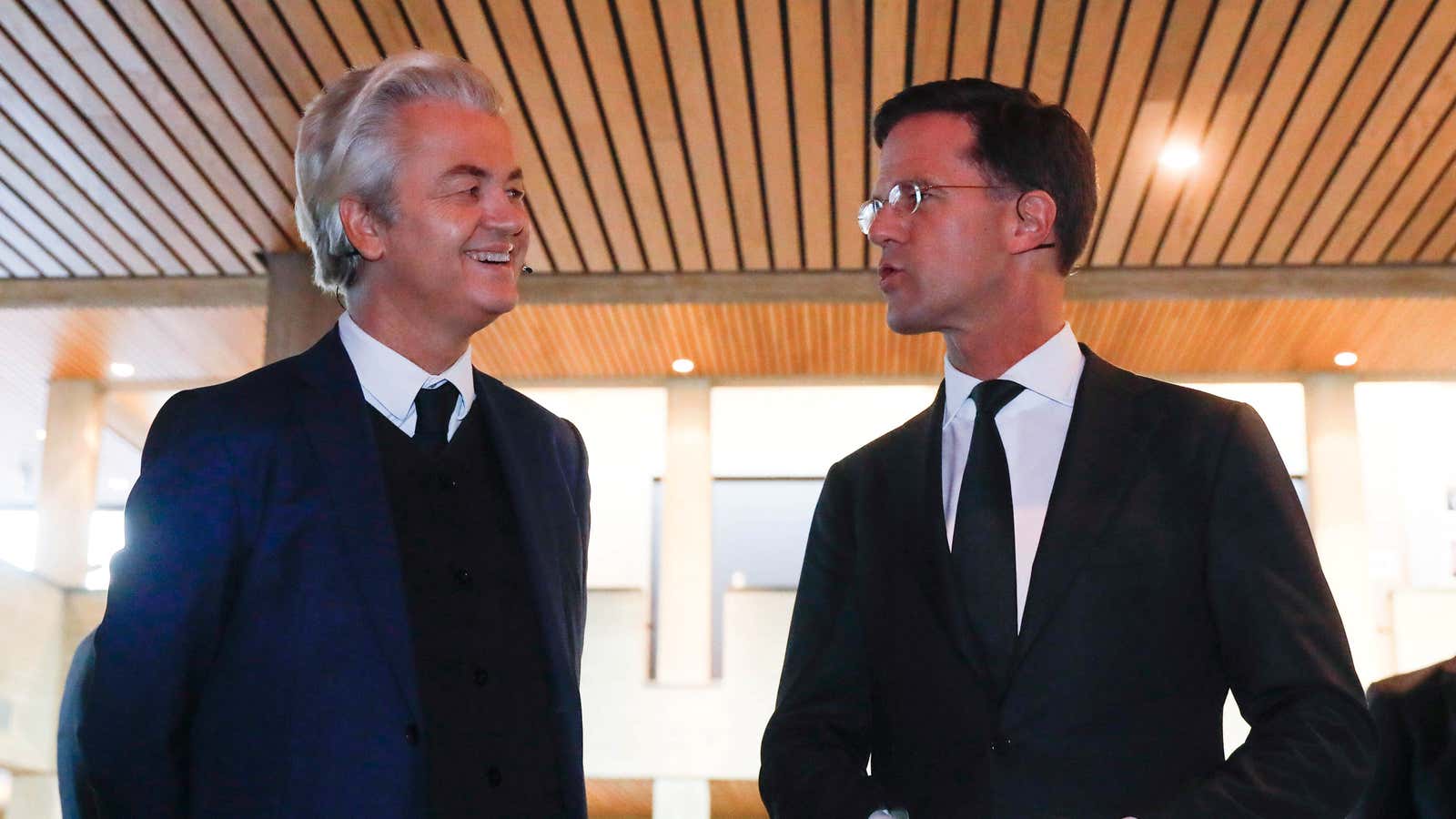As the Dutch go to the polls today, the world is looking to the next Dutch prime minister and the government that follows for clues about other elections across Europe. But the answer may not come for at least another three months.
On its face, the election appears to be a tight race between incumbent prime minister Mark Rutte, the center-right candidate, and far-right politician Geert Wilders, but the outcome won’t yield one ultimate victor. The Dutch parliamentary system requires that the winner achieve an outright majority to form a majority government; in the absence of that, the winner must build a majority coalition among other parties (76 parliamentary seats out of 150).
No single party has won a majority in the Dutch parliament in modern history. In fact, because the Dutch electoral system is proportional, i.e. it lacks electoral districts, the votes won by a party translate into a proportional number of parliamentary seats, making it easy for small parties to enter parliament.
Since 1946, Dutch coalition governments have taken 90 days on average to form. The ease of coalition-building tends to depend on the party leaders and their environment. It only took Rutte 52 days to form a coalition after the snap general election in 2012, but to do so Rutte stressed unity and compromise after a decade of political turmoil. Rutte’s current government is the first to serve a full term since the first Kok cabinet in 1998. The shortest formation took 10 days in 1948, while the longest took 208 days in 1977.
The Netherlands is “at the top of the list of lengthy coalition formation processes” says Hans Vollaard, a Dutch and European Politics lecturer at Leiden University. But the Dutch consider this par for the course and “don’t get that nervous about it.”
From 1950 to 1995, the Dutch on average took the longest to form their governments than any other country in Europe, according to a study published in 2003. Coalition formation generally took just over a week in Denmark, Norway, and Sweden, but in Italy, Austria, and Belgium, the process took over a month. Belgium holds the record for the longest coalition formation, which took 589 days in 2011.
In the Netherlands, forming a government may take longer than usual because big Dutch parties are getting smaller. Between 1986 and 2012, the proportion of parliament won by the three largest parties dropped from (paywall) 89% to roughly 60%. This year, a record number of parties are expected to win ten seats or more, which could drag on the process more.
A win for Wilders’s Freedom Party (it’s expected to gain more than the 15 it has now) could create gridlock at best, and a political crisis at worst. Besides Wilders’s radical, anti-Muslim manifesto, which doesn’t sit well with most Dutch MPs, there’s the fact that he is notoriously difficult and unpredictable to work with. “Nobody wants to work with Freedom Party in a new government,” says Vollaard.
There is a way out of this scenario. Even if Rutte took second place, he could try to form his own coalition if no one wanted to join Wilders’s. But the coalition would likely be weak and unstable, since Rutte’s go-to coalition party, the Dutch Labor party, is flailing.
The Dutch, after all, have had five elections since 2002, thanks in part to coalitions breaking down.
